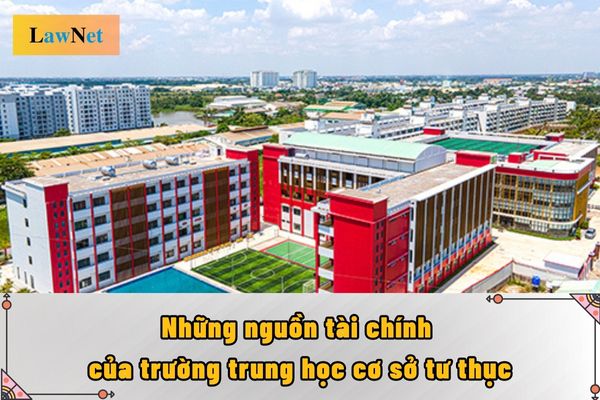What are the financial sources of a private lower secondary school in Vietnam?
What are the financial sources of a private lower secondary school in Vietnam?
Based on Article 16 of the Regulation on organization and operation of primary schools, lower secondary schools, upper secondary schools, and multi-level schools, issued together with Circular 40/2021/TT-BGDDT, the finances of a private secondary school shall include the following sources:
[1] Contributions from organizations and individuals who establish the school and other legitimate mobilization sources;
[2] Tuition fees in accordance with the provisions of the Education Law 2019 and other legal regulations;
[3] Interest from bank deposits, State Treasury, and credit institutions;
[4] Investments, sponsorships, aids, donations, and gifts from domestic and foreign organizations and individuals as regulated;
[5] Loans from banks, credit institutions, and individuals;
[6] Support from the budget when performing tasks assigned by the State;
[7] Other legitimate collections.
* Note: The financial regime of a private secondary school operates on the principle of financial autonomy, implementing policies on accounting, auditing, taxation, asset valuation, and financial transparency as regulated by law. (This is also clearly stipulated in Clause 1, Article 101 of the Education Law 2019)
Therefore, the financial sources of a private secondary school are formed based on 7 sources.

What are the financial sources of a private lower secondary school in Vietnam? (Image from the Internet)
What are the regulations on management of a private lower secondary school in Vietnam?
Based on Clause 5, Article 16 of the Regulation on organization and operation of primary schools, lower secondary schools, upper secondary schools, and multi-level schools, issued together with Circular 40/2021/TT-BGDDT, a private secondary school manages finances as follows:
- The private general education school collects tuition fees and other fees as stipulated by the Education Law 2019 and relevant laws; organizes financial management, accounting, taxation and performs other financial obligations as required by law;
- The finances and property of the private general education school are formed from financial sources specified in Clauses 2 and 4, Article 16 of the Regulation on organization and operation of primary schools, lower secondary schools, upper secondary schools, and multi-level schools, issued together with Circular 40/2021/TT-BGDDT;
- Finances and property donated by organizations and individuals for non-refundable assistance during operation are not distributed to individuals but only used for the common benefit of the school;
- The school must establish a financial regulation and have it approved by the investors' meeting or owner before the chairperson of the school council approves it to serve as a legal basis for managing the school's finances;
- The school's annual budget estimation and settlement are submitted by the principal to the investors' meeting or owner for approval;
- Develop regulations on asset utilization and annually establish an asset inventory council to value property and reinvest or supplement property;
- In case of asset conversion, asset transfer, or cessation of educational activities, the school establishes an asset liquidation committee, inventories all property, submits it to the investors' meeting for approval, and refunds capital contributions to members as regulated;
- The school must comply with State regulations on capital mobilization and usage, income and expenditure, financial result distribution; comply with financial inspections regarding the use of funds, and the increase or decrease of school capital by financial authorities, and register the increase or decrease of capital in accordance with legal regulations;
- Withdrawal and transfer of capital must comply with legal regulations on capital contribution and investment, ensuring the development and stability of the school;
- Private general education school's revenue is used for educational activities, fulfilling obligations to the state budget, setting up development funds, and other school funds, with the remainder distributed to investors according to their capital contribution ratio, except for non-profit educational institutions;
- Annually, the private general education school implements policies to publicize conditions ensuring quality as required; financial transparency and submits financial reports to sectoral management agencies, financial authorities, and tax agencies as per current accounting policies; organizes accounting and statistics work as regulated by law;
- Private general education schools must not allow any individual or organization to misuse the school's name or facilities to conduct activities that violate the law or perform profiteering acts inconsistent with the school's educational activities.
What does property of private lower secondary schools include?
Based on Clause 4, Article 16 of the Regulation on organization and operation of primary schools, lower secondary schools, upper secondary schools, and multi-level schools, issued together with Circular 40/2021/TT-BGDDT, the property of a private secondary school include:
{1} Initial property contributed by members;
{2} Property formed during the school's operation;
{3} Property donated, gifted, or non-refundable sponsored, supported, or aided.

